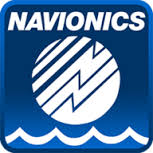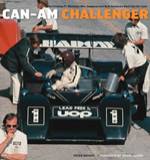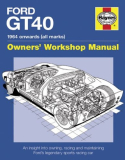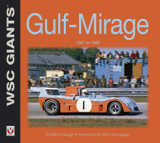E-shop
- * CD/DVD/BLU-RAY
- * Dárkové poukazy
- * Kalendáře
- * Magazíny
- * NAVIONICS
- * Plakáty a grafické listy
- * Prospekty a brožury
- * Slovníky
- ATV, čtyřkolky, sněžné skůtry
- Autobusy, tramvaje, trolejbusy
- Automobily osobní a dodávky
- _Automobilová technika
- _Autokatalogy
- _Caravaning
- _Design
- _Elektromobily & hybridy
- _Karosárny & karosáři
- _Osobnosti & konstruktéři
- _Repliky / kitcars / stavby
- _Sbírky a muzea
- _Sport
- _Veteráni
- Abarth
- AC
- Acura
- Adler
- Aero
- Africar
- Alfa Romeo
- Allard
- Allstate
- Alpine
- Alvis
- AM General
- AMC
- Americké automobily
- Armstrong Siddeley
- ARO
- ASA
- Aston Martin
- Auburn
- Audi
- Austin
- Austin-Healey
- Austro-Daimler
- Auto Union
- Autobianchi
- Ballot
- Bantam
- Barkas
- Bedford
- Bentley
- Benz
- Berkeley
- Bitter
- Bizzarrini
- BMW
- Bond
- Borgward
- Brabham
- Bricklin
- Bristol
- British Leyland
- BRM
- Brough Superior
- BSA
- Bugatti
- Buick
- Cadillac
- Callaway
- Caterham
- Citroen
- Cisitalia
- Clan
- Colt
- Cord
- Crosley
- Crossley
- Cunningham
- Dacia
- Daewoo
- DAF
- Daihatsu
- Daimler
- Dallara
- Darracq
- Datsun
- De Dietrich
- De Dion
- Delage
- Delahaye
- DeLorean
- Denzel
- DeSoto
- De Tomaso
- Diatto
- Dixi
- DKW
- Dodge
- Duesenberg
- Eagle
- Edsel
- Elva
- EMW
- ERA
- Excalibur
- Facel Vega
- Falcon
- Ferrari
- Fiat
- Ford
- Ford USA
- Frazer-Nash
- FSO Fiat Polski
- General Motors
- Genesis
- Geo
- Ginetta
- Gilbern
- Glas
- GMC
- Goggomobil
- Goliath
- Gutbrod
- Hanomag
- Hartnett
- Healey
- Henney
- Hillman
- Hino
- Hispano Suiza
- Holden
- Hommell
- Honda
- Horch
- Hotchkiss
- Hudson
- Humber
- Hummer/Humvee
- Hyundai
- Checker
- Chevrolet
- Chrysler
- Chrysler Europe
- IFA
- Imperial
- Infiniti
- Innocenti
- Intermeccanica
- International
- Invicta
- ISO
- Isotta-Fraschini
- Isuzu
- Itala
- Iveco
- Jaguar
- Jeep
- Jensen
- Jowett
- Kaiser-Frazer
- Karmann
- KdF
- Kia
- Lada/VAZ
- Lagonda
- Lamborghini
- Lancia
- Lanchester
- Land Rover
- Laurin-Klement
- La Salle
- Lea-Francis
- Lexus
- Light Car Co.
- Ligier
- Lincoln
- Lloyd
- LMX
- Locomobile
- Lola
- London Taxi Intl.
- Lotus
- Marendaz
- Marcos
- March
- Marmon
- Maserati
- Matra-Simca
- Maybach
- Mazda
- McLaren
- Mercedes-Benz
- Mercury
- Messerschmitt
- Metalex
- MG
- Mini
- Mitsubishi
- Monica
- Monteverdi
- Moretti
- Morgan
- Morris
- Moskvič
- Muntz
- Nash
- Nissan
- Noble
- NSU
- Oldsmobile
- Oltcit
- Opel
- OSCA
- Packard
- Pagani
- Panhard
- Panoz
- Panther
- Peerless
- Pegaso
- Peugeot
- Park Ward
- Pierce-Arrow
- Plymouth
- Pontiac
- Porsche
- Praga
- Puch
- Puma
- Rambler
- Range Rover
- Reliant
- Renault
- Proton
- Railton
- Riley
- Riva
- Rochdale
- Rolls-Royce
- Rover
- Röhr
- Saab
- Saturn
- Scioneri
- Seat
- Shelby
- Schustala
- Simca
- Singer
- Smart
- Spyker
- Standard D
- Standard GB
- Stanguellini
- Steyr
- Studebaker
- Subaru
- Stutz
- Sunbeam
- Suzuki
- Swallow
- Syrena
- Škoda
- Talbot
- Tarpan
- Tatra
- Terraplane
- Tesla
- Tojeiro
- Toyota
- Trabant
- Trident
- Triumph
- Tucker
- TVR
- Tyrrell
- UAZ
- Unipower
- Vanwall
- Vanden Plas
- Vauxhall
- Vector
- Venturi
- Voisin
- Volha / GAZ / Čajka
- Volkswagen
- Volvo
- Walter
- Wanderer
- Wartburg
- Warszawa
- Wiesmann
- Wikov
- Westfield
- Williams
- Willys
- Wolseley
- Yugo/Zastava
- Zagato
- ZAZ
- Zbrojovka
- ZIL
- Zimmer
- Automobily nákladní a tahače
- Cyklistika
- Hudební nástroje, hudba
- Letectví, kosmonautika
- Lodě, lodní technika
- Malá motorová technika
- Modely a sběratelství
- Motocykly
- Počítače, IT
- Traktory, zemědělská technika
- Železniční technika, vlaky
- Zbraně, vojenská technika
- Zdraví, domácnost, sport


![]()



![]()


![]()

![]()

![]()



Úvod »Automobily osobní a dodávky»Schustala » Ford GT40 & GT 1964-2006
Anotace
Had Enzo not rejected the offers from Henry Ford II the likelihood is that this book and the countless others on the Ford GT40 would not have been published. That is because the car would not have existed. Henry Ford II was not pleased with the rejection and vowed to beat him on the race tracks of the world. It was the spark that ignited what was probably the most exciting era in Ford's history, a period when the corporate byline was Total Performance. It began in 1964. The Ford GT40 had English roots; it began its life in 1963 as a Ford V8-engined Lola GT designed by Eric Broadley in Slough, and competed at Le Mans in 1963. Ford was impressed by its performance and formed a liaison with Lola Cars and completed a redesign in time for the 1964 season. When released in Dearborn the GT40 was probably the prettiest racing car ever designed up to that time. The trouble was, it might have looked sensational and it was undoubtedly very fast but its aerodynamic performance left much to be desired as did its reliability under race conditions. To say that the 1964 season was something of an embarrassment for the Ford Motor Company would be an understatement as the GT40s failed to finish in such prestigious events as the Nürburgring 1000 kms, Le Mans 24-hour, Rheims 12-hour and the Nassau Tourist Trophy. However, Henry Ford II and his engineers and designers were not unduly dissatisfied, regarding these outings as part of the learning curve of international competition. Ferrari continued to enjoy considerable success, no doubt much to the chagrin of the Ford camp. The evolution of the GT40 design saw a new front grafted on that significantly reduced lift at very high speeds (there were several noses used in its career) and ever-larger in capacity (they grew from 4.7-litres to a huge 7-litres) and power output V8 engines all based loosely on production engines, were used, always with the aim of winning at Le Mans. In 1966 came the much modified Mark 2 version and with this car success started to come Ford's way with wins at Daytona 24-hours and at Sebring and podium places at Snetterton, the Tourist Trophy and at Brands Hatch in the UK, as well as at Monza and Spa-Francorchamps. It was also the year in which Henry Ford’s dream was realized when the surviving three GT40s (out of 8 Fords that started) finished 1-2-3 at Le Mans! For 1967 the former J-Car became the Mark 4 GT40 and it blazed a path of victories and podium places in every major long distance race in America and Europe, including Le Mans where it finished 1-2. Although the GT40 continued to be raced after the 1967 season, it was with private teams rather than from Ford itself, and it continued to score victory after victory to the point where it became a legend in its own lifetime. So much so that recently Ford has dusted it off and produced in limited volume a modern-day replica of what was arguably the company's most famous race car. Forty years young and it is still a magnet for enthusiasts whenever seen at a motoring event.
The Ford GT40 had English roots, 1966 was the year when Henry Ford's dream was realized when three GT40s finished 1-2-3 at Le Mans. Recently Ford has produced a limited volume modern day replica. Models covered: Mk. I, Mk. II, Mk. III, Mk. IV & GT. With 208 page including 48 in colour.













